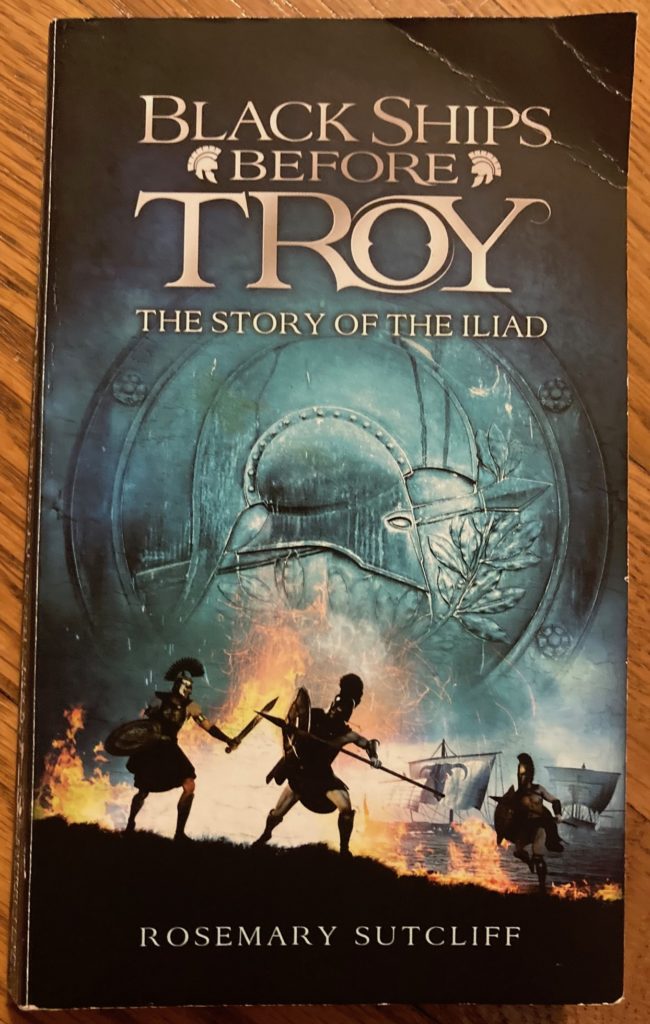“In the high and far-off days when men were heroes and walked with the gods, Peleus, king of the Myrmidons, took for his wife a sea nymph called Thetis, Thetis of the Silver Feet.”
So begins Black Ships Before Troy by Rosemary Sutcliff. This retelling of Homer’s Iliad is a supplemental reading in the 7th grade Ancient World History course I’m teaching this year at Charis and, though I’d read it once before, I was happy to work through it again in preparation for the class.

In brief… well, this is awkward. I feel that I must confess off the top that though I have read translations of Homer’s Odyssey and Virgil’s Aeneid, I have failed as yet to read a literal translation of The Iliad, which leaves me at a loss to compare this to the original. As a consequence, I will keep my comments to the work at hand and not its far more famous predecessor.
In brief, this is the classic story of the Trojan War. When the Greek Queen Helen runs away with the Trojan Prince Paris, her husband and his many allies attack the great city in an effort to retrieve her. Through more than a decade the battle rages, calling to its war fields such heroes as Hector and Achilles and Odysseus and Agamemnon, and all the while the Greek gods take sides to lend their aid and their trouble. Finally, when so many heroes on both sides have died, the Greeks feign a retreat and stow away their greatest remaining warriors into the belly of an enormous wooden horse. Through deceit and subterfuge, the horse is drawn into the city and Troy’s doom is sure. The city’s gates are opened from the inside and the returning Greek host sacks and burns and kills until Troy is but a terrible memory. Helen is reclaimed and forgiven (but not, perhaps, by the reader) and the Greeks set sail to return to their homes.
I thoroughly enjoyed this book, all the more so after having read The Odyssey and The Aneid. Sutcliff’s rendition is well done, though I confess my first exposure left me feeling that it was too full of unfamiliar place and character names for my liking. In the context of the other epics, however, and perhaps with a bit of time to grow in my appreciation, I took it in with more relish the second time through. In the context of my class, it provides a good comparison of the Greek gods’ relationship to their worshipers with that of the Biblical God and his. Unsurprisingly, Truth comes out looking pretty good.
If you’re wanting to expose your children to the classics but don’t think they’re quite ready for Homer’s poetry, this is a great early introduction!
Content Notes
| Profanity | 0 | – | None. |
| Violence | 3 | – | Lots of fairly graphic battle deaths. |
| Sex/Romantic Themes | 1 | – | Reading between the lines, one might guess that there is plenty of sexual activity going on, but Sutcliff keeps it all – even Helen and Paris’ adultery – at a far distance. Little is described beyond the generality of “their love.” |
| Miscellaneous | The story is saturated with the Greek religion and their gods who are very much real and active in the telling. |
